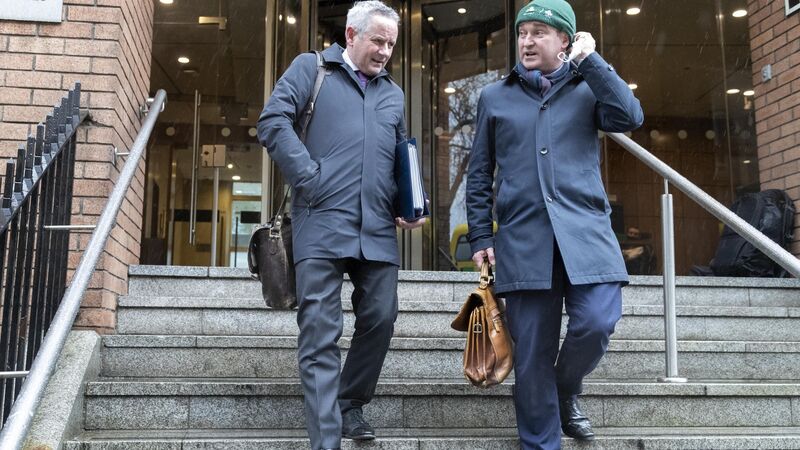Niamh Griffin: Health committee bickering won't help clear waiting lists

There were tense exchanges when Paul Reid ( left) and Robert Watt (right) attended a Joint Committee on Health meeting to discuss the oversightof Sláintecare this week. Photo: Colin Keegan, Collins Dublin
Watching from Ireland as discussions in the British parliament become more colourful every day has been entertaining, but we got a taste this week of watching Irish officials engage in spats of their own, and it was not so much fun.
The Oireachtas health committee met on Wednesday to discuss oversight and progress in the Sláintecare reform programme, mainly hearing from Robert Watt, secretary-general at the Department of Health, and Paul Reid, CEO of the HSE. Tense exchanges ensued.













